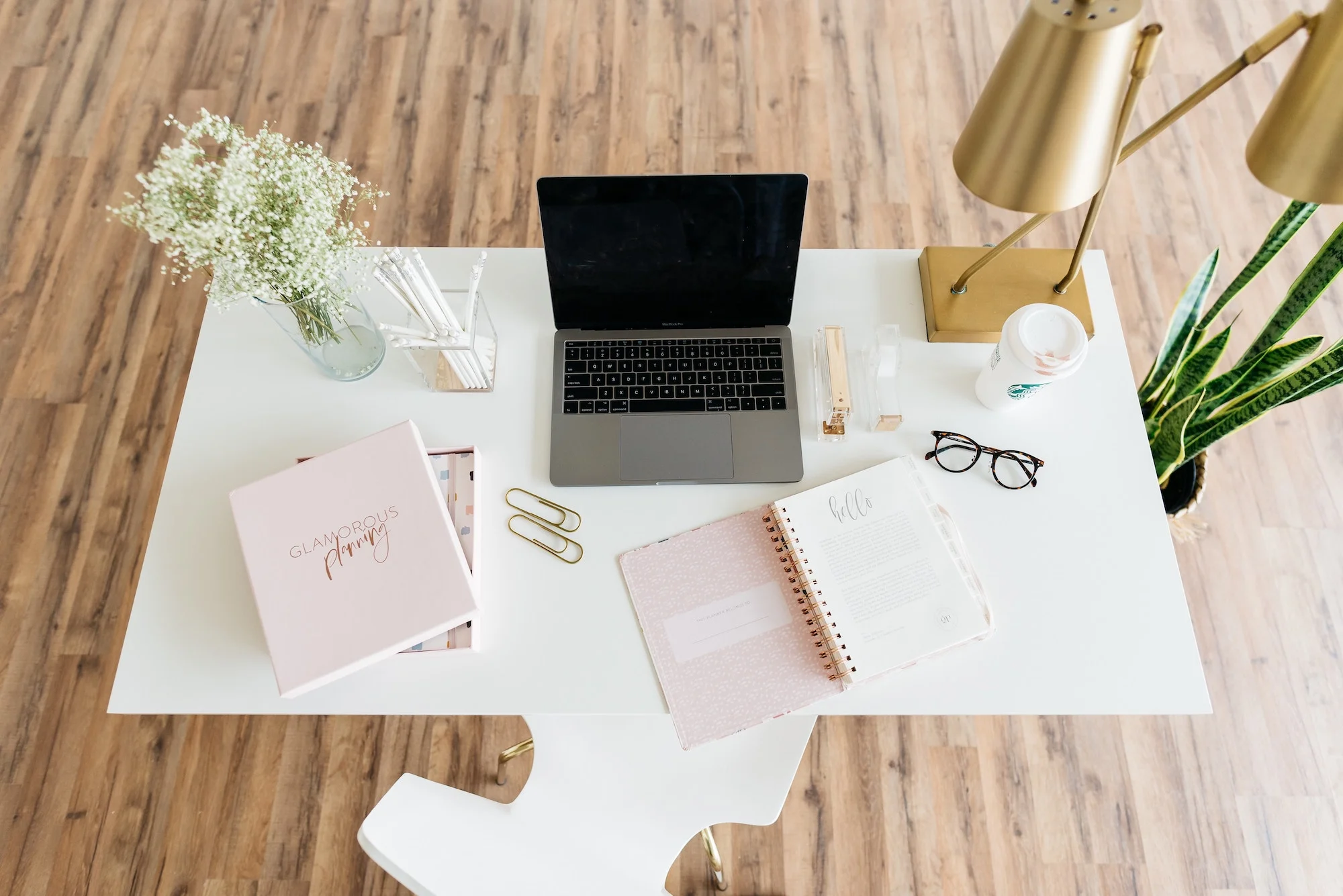Workplace Wellness, When You Work from Home
In today’s digital economy, more and more people are working desk jobs from home—either working remotely for a larger company or client, doing freelance work, or running a business without the traditional brick-and-mortar.
In some regards, this new style of work tends to offer more flexibility for healthful practices than the typical corporate office environment. But there are also unique “workplace wellness” challenges faced when working for yourself and/or from home.
As a business owner (and a former freelancer and blogger before that), I’ve worked from home either full-time or part-time for about seven years.
For some of that time I’ve had a dedicated home office, and for some of it I’ve worked from the kitchen table, couch, bed, etc. I’ve enjoyed some healthy practices afforded by being on my own schedule (yay, afternoon walks!), and I’ve also gone to a chiropractor for the neck problems caused by my work-from-the-couch posture.
Fortunately, over the years, I’ve learned various tips on maintaining good physical and mental health while working from home. 😊
How to prioritize wellness when you work from home
Here are ten ways to prioritize wellness in your home “office”:
Create an intentional office space
Whether this is a dedicated room in your home, or a re-purposed space that’s used for something else when you’re not working, it’s worth considering what you need to be focused and productive.
Do you need a quiet space? Plenty of natural light? Do you need desk space to write on, a place to easily access paper files or documents?
Though it seems simple, intentionally choosing and setting up your workspace can increase productivity and reduce stress down the road.
Prioritize an ergonomic set-up
When working from home it can be tempting to work from your couch or bed. But working on a laptop in these positions can (and mostly likely will) wreak havoc on your body over time.
It’s best to set up a desk, chair (or yoga ball), monitor and keyboard situation that is ergonomically correct. This interactive workspace planner helps determine how your desk should be best positioned for your height.
If you’re interested and able, a standing desk is ideal, as sitting is not too good for your health.
Get up from your desk regularly
Ughhh, so hard, I know. Ideally (for your health) you should get up from your desk at least every half hour. For some people this is near impossible, or breaks focus and diminishes productivity, so play around with what works best for you.
It’s helpful to set reminders that prevent you from “forgetting” to get up. I like to set an alarm on my phone for 30 minutes. Even if I just stand up and walk around the room for a few seconds as I’m turning it off, that counts as movement, which is good!
20/20/20 vision rule
Computer eye strain is real—and can lead to dry eyes, blurry vision and headaches. When working on a computer it’s a good idea to follow the 20/20/20 rule: every 20 minutes, look at something 20 feet away for 20 seconds.
Good health is good business.
Know when & how to unplug
The work schedule of an entrepreneur is a fine balance. Though there tends to be much more flexibility in an entrepreneur’s schedule than that of someone who works a corporate 9-5 job, there’s also a downside: being able to work anytime, anywhere can lead to working all the time, everywhere.
This is particularly true during busy or start-up phases of the business, and especially for solopreneurs who have the responsibility of “doing it all.” (If that’s you, be sure to check out our top business tools for increasing efficiency in your business!)
A healthy work/life balance means different things for different people, but in general it’s a fulfilling mix of both work and play.
For some people this means keeping fairly strict 9-5 office hours and then shutting down work and spending time with family or friends outside of that. For some people it means working long, intense hours and then enjoying a longer period of time off.
Work/life balance is not about achieving an exact ratio, but rather finding the mix that works best for you—maintaining a division of work and play that feels balanced.
In addition to knowing how often to step away from your work, it’s also important to know what’s needed to step away: Do you close your office door and not enter again until the morning? Do you turn off work notifications on your phone? Do you leave your laptop behind on a family vacation?
Have some social interaction
One side effect of working from home is that you may not see or interact with as many people throughout your day as you would if you were in a larger, shared office environment. Because of this, some people who work from home can get a little lonely (whether it’s conscious or not!).
But even if it’s not yet “bothering” you in the loneliness sense, social interaction is still hugely important for overall health, as well as a great spark for creativity and problem-solving.
Adding more social interaction into your solopreneur lifestyle could mean: making a special effort to plan social events with friends or family, joining professional networks, or spending time working in a co-working space.
Get dressed in the morning
When you work from home it can be all-too-easy to stay in your pajamas all day—there’s so much to be done, why waste time getting dressed and doing your hair and make-up?!
While there’s absolutely nothing wrong with working in your pajamas if you’d like, some people find they feel best if they freshen up in the morning and change into clothes that make them feel good.
If this is something that helps you feel more professional and productive, you can set a rule: “no entering the office in the morning until you’re in your office attire” (whatever that may be).
For people who work from the same living area of their home they use for other purposes, it can also be helpful to get dressed in more professional clothing that mentally separates your “work time” from your “relaxing at home time.”
Plan a healthy lunch
Working from home is a great opportunity to eat healthfully throughout the day, as you don’t have to pack a lunch or find a place to refrigerate it and heat it up. However, having the full kitchen at your disposal can also be a slippery slope toward snacking all day on things you didn’t really intend to.
I find it helpful to create a weekly meal plan that outlines what I’m eating for lunch that week—it ensures I have all the ingredients on hand for healthy lunches, and avoids the last-minute scramble to piece something together as you realize you’re starving.
Take a walk
One of the work-from-home tips I find most helpful, both physically and mentally, is to get outside during the day to take a walk or run. Not only does this help boost energy and creativity (particularly in the afternoon!), but it’s all-around good for your health to get some fresh air and vitamin D.
Invest in plants
This may seem a little random, but there are actually a few good reasons to add plants to your home office space:
Sadly, indoor air is typically much more polluted than the air right outside your home. But certain plants—like easy-to-care-for peace lilies, rubber plants and spider plants—are great natural air purifiers. (See the list here!)
Exposure to greenery from plants is shown to reduce fatigue, boost creativity and productivity, and may even make you happier! Woohoo!
Business tips for entrepreneurs
Get my weekly(-ish) emails on all things web design, blogging & entrepreneurship:










